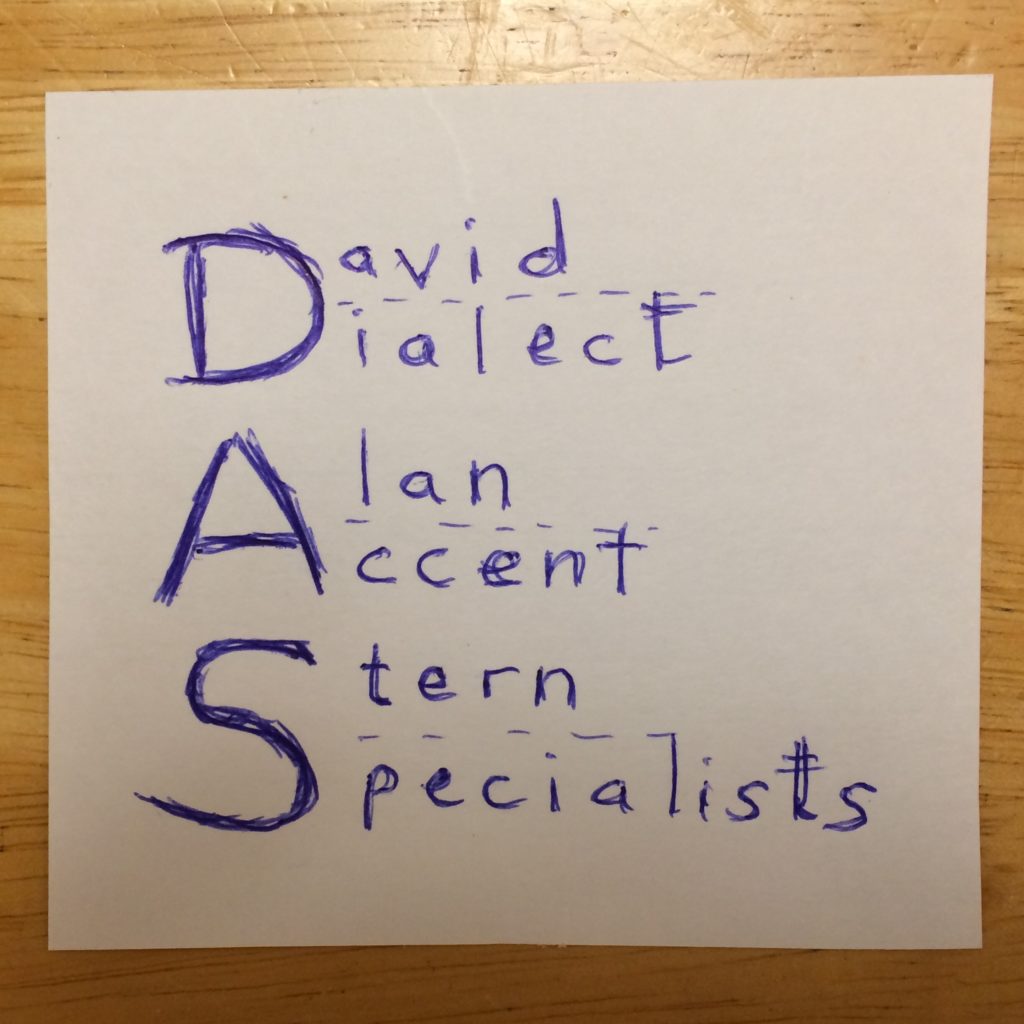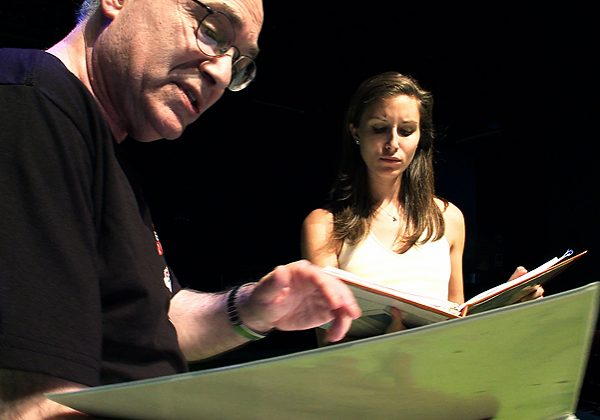
“What is the difference, if any, between a dialect and an accent?” That is one of the questions I’m asked frequently during media interviews, classes, and coaching sessions. You’d think it would have a straight forward answer. No—for two reasons. First, many people, even we who teach dialects (or is it accents?), often ignore official definitions and use the two words interchangeably. The second complication: there are two pairs of definitions for these terms, within each, different factors separate one from the other. So, not everyone who tries to maintain the distinction use the same definitions.
INTERCHANGEABLE USAGE
Regardless of how I defined these terms, I admit that I’ve used the words interchangeably for most of my career. During any lesson, I might well say “Cockney dialect” one moment and switch to “Cockney accent” in the next sentence. I even reinforced that lack of distinction in the original title/subtitle of my audio-training series, Acting with an Accent: Stage Dialect Instruction. Most of the professional voice & speech trainers I’ve known—even those specializing in accent/dialect work—have admitted to the same random use of the two words in conversations and coaching sessions.
This frequent disregard for linguistic differences has also led to confusion about the name we use for my profession. Am I a “dialect coach” or an “accent coach”—or perhaps a “dialect/accent coach”? Maybe the title itself would/should change depending on the specific elements of speech or language I’m teaching from job to job? But, before I can explore that issue any further, we must look at the ways different professionals define and distinguish between the terms.
ACCENT vs DIALECT: THE LESS COMMON DISTINCTION
Some speech/language professionals (especially on the North American side of the Atlantic) use the word “accents” only when traits from a speaker’s first language affect the sound of a language s/he learned later in life. By contrast, they use “dialect” to label variations in grammar, usage, and sound by groups of native speakers WITHIN the same language. This is the distinction I myself used for many years. So, I would talk about teaching French or Spanish “accents” to English-speaking actors. Conversely, I’d have said I was teaching Cockney or New York “dialects” for characters speaking the native English of working-class London or NYC. (CLICK TO READ AN ARTICLE that identifies this distinction between the terms to be one of the existing options.)
THE MORE COMMON DISTINCTION
Now let’s consider the most accepted linguistic distinction between the terms. (1) An “accent” involves only the SOUND of the speech pattern. Among the sound components of an accent are the specific vowel and consonant pronunciations, the voice “placement” (resonance traits), and intonation or prosody (pitch, rhythm, and stress elements). (2) A “dialect” includes all the sound issues just mentioned, but also characteristics involving semantics (word usage), grammar, and sometimes spelling. Under this set of definitions, I’m considering the RP ACCENT when I note that “schedule” should begin with an SH rather than an SK sound. I move on to considering DIALECT when I note that I enter a “car park” rather than a “parking lot.”
DIALECT COACH vs ACCENT COACH?
Now back to the question of whether my many respected counterparts and I are accent or dialect coaches. During my career, I’ve rarely (if ever) seen a professional theatre program or screen credit listing for an “accent coach.” “Dialect coach” is almost always used, so I billed myself as such to avoid confusing employers and audiences. But in recent years, I’ve changed that; I’m more comfortable now calling myself an “accent coach.” Why? My coaching primarily focuses on the sound (pronunciation, intonation, placement, etc.) of the speech patterns. So, under the second set of definitions, which I now accept, I usually concentrate on accents. During those few moments that I’m teaching actors variations in grammar or word usage, yes—I’d be doing dialect coaching as well. But, at least in my career, those dialect issues have usually been handled by the script writers.

In addition to the audio lessons available on the website (www.LearnAccent.com),
David Alan Stern is also available for:
Distance Lessons (Skype or Zoom)
Production Coaching for Theatre, Film, or TV
Campus Teaching/Coaching Residencies